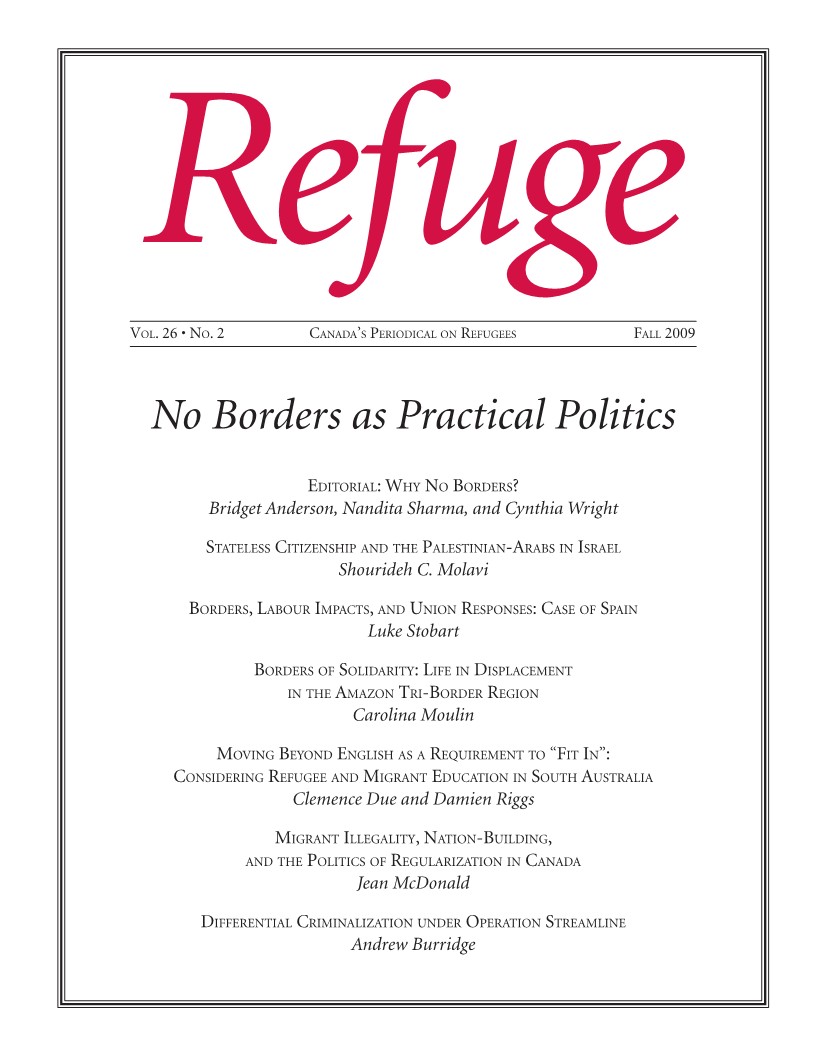Stateless Citizenship and the Palestinian-Arabs in Israel
DOI:
https://doi.org/10.25071/1920-7336.32075Keywords:
Israel, Palestinian-Arab citizens, statelessness, citizenship, discrimination, bordersAbstract
This paper will focus on Israel’s system of government with specific attention to the idea of citizenship and to its Palestinian-Arab citizenry. It will begin with a historical and political background of Palestinian-Arab citizens, along with an examination of their paradoxical circumstances living as non-Jewish citizens in a “Jewish state.” The multi-faceted discrimination faced by Palestinian-Arab citizens is laid out in an attempt to outline the apartheid state structure and system that constitutes the Israeli regime. The ethnicized nature and structure of Israeli citizenship will then be explained, and an analysis of the limited access of Palestinian-Arabs to Israeli citizenship through an illustration of the state’s legal definition and political characterization as a “Jewish state” will follow. This paper will argue that Israel’s (hardening) ethnic policies and practices, coupled with internal Palestinian political rifts and resistance, have resulted in a notable shrinking space of citizenship. Expanding on this analysis of Israeli citizenship and state structure, this paper will introduce the concept of statelessness and argue that self identification of the Israeli state as “Jewish” repudiates the citizenship of the Palestinian-Arab community, rendering this collective stateless. The paradoxical status of stateless citizenship will be explored to illustrate that this form of statelessness is not rooted in the absence of citizenship but rather in its presence, thus distinguishing between the statelessness of the Arab citizenry of Israel and the rest of the Palestinian nation. The paper will end with the application of Mark Salter’s metaphor of the border, arguing that, as stateless-citizens, Palestinian-Arabs are in a permanent state of border exception, the effect of which makes their bodies into borders.
Metrics
Downloads
Published
How to Cite
Issue
Section
License
Copyright (c) 2011 Shourideh C Molavi

This work is licensed under a Creative Commons Attribution-NonCommercial 4.0 International License.
Refuge authors retain the copyright over their work, and license it to the general public under the Creative Commons Attribution-Non Commercial License International (CC BY-NC 4.0). This license allows for non-commercial use, reproduction and adaption of the material in any medium or format, with proper attribution. For general information on Creative Commons licences, visit the Creative Commons site. For the CC BY-NC 4.0 license, review the human readable summary.







